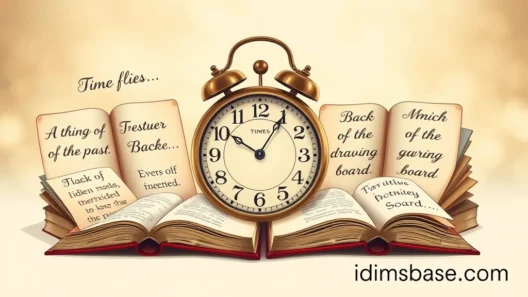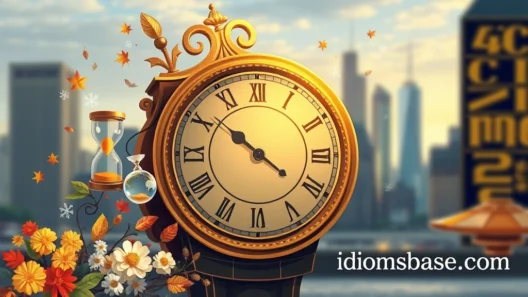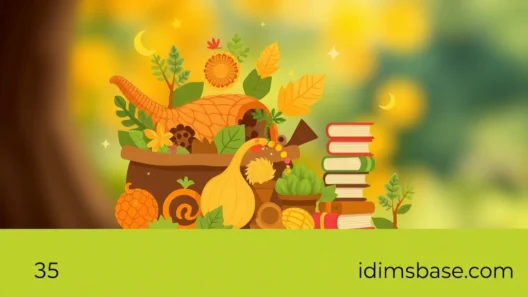Have you ever felt that electrifying surge of joy, that bubbly feeling in your stomach, or that irresistible urge to jump for joy? That’s excitement, pure and unadulterated! It’s a universal emotion, a vibrant hue in the spectrum of human experience. But how do you really describe that feeling in English? Beyond a simple "I'm excited," our language offers a treasure trove of colorful idioms that paint a vivid picture of exhilaration. Whether you're bursting with anticipation for a long-awaited trip, thrilled about a new project, or just plain giddy about something wonderful, these expressions will help you articulate your enthusiasm with flair and precision. Let’s dive into a world where words dance with delight and feelings find their perfect linguistic match!
35 Idioms for Being Excited
Get ready to supercharge your vocabulary and express your excitement like a native speaker! Each of these idioms offers a unique flavor of exhilaration.
-
On cloud nine: This classic idiom perfectly captures a state of extreme happiness and excitement, as if you're floating above the world.
- Example: "After getting the promotion, she was on cloud nine for days!"
-
Over the moon: Similar to "on cloud nine," this means incredibly happy and delighted.
- Example: "When they announced the concert, fans were over the moon."
-
Buzzing with excitement: Imagine a bee buzzing with energy – that's the feeling this idiom conveys. It implies a vibrant, energetic anticipation.
- Example: "The whole office was buzzing with excitement before the holiday party."
-
Pumped up: This one suggests a feeling of being mentally and emotionally ready and eager, often for an event or challenge.
- Example: "The athletes were really pumped up for the championship game."
-
Chomping at the bit: This idiom comes from horses eager to run. It means you're impatient and eager to start something.
- Example: "He's been chomping at the bit to start his new job."
-
Can't wait: A simple yet powerful expression of strong anticipation and eagerness.
- Example: "I can't wait for the weekend to arrive!"
-
Thrilled to bits: This emphasizes an intense level of excitement and pleasure.
- Example: "She was thrilled to bits when she saw the surprise gift."
-
Jumping for joy: Literally, to jump because you're so happy and excited.
- Example: "When he heard the good news, he started jumping for joy."
-
Walking on air: This conveys a light, euphoric feeling, as if you're so happy you don't even feel the ground.
- Example: "Ever since their engagement, they've been walking on air."
-
Head over heels: While often used for being in love, it can also describe being completely overwhelmed with excitement and enthusiasm.
- Example: "He's head over heels about his new apartment."
-
On the edge of your seat: This describes a state of intense anticipation and suspense, often for something exciting that's about to happen.
- Example: "The audience was on the edge of their seats during the final scene."
-
Giddy with excitement: Giddy means feeling frivolous and light-headed, usually from happiness or excitement.
- Example: "The children were giddy with excitement on Christmas morning."
-
Fired up: Similar to "pumped up," this means full of enthusiasm and energy, ready for action.
- Example: "The coach really got the team fired up before the match."
-
Raring to go: This means very eager and ready to start something immediately.
- Example: "After a good night's sleep, I'm raring to go!"

-
Like a kid in a candy store: This paints a picture of pure, unadulterated joy and excitement, especially when faced with many exciting options.
- Example: "He was like a kid in a candy store at the tech expo."
-
Beside yourself with excitement: This means you're so excited that you can barely control your emotions.
- Example: "She was beside herself with excitement about her upcoming trip."
-
Full of beans: This idiom means full of energy and enthusiasm.
- Example: "The puppies were full of beans after their nap."
-
Eager beaver: This describes someone who is very enthusiastic and keen to do something.
- Example: "He's always been an eager beaver when it comes to new projects."
-
Can’t get enough of (something): This expresses intense enthusiasm and desire for more of something.
- Example: "I can't get enough of this new song – it's so catchy!"
-
Bright-eyed and bushy-tailed: This describes someone who is alert, energetic, and enthusiastic.
- Example: "She arrived at work bright-eyed and bushy-tailed, ready for the new challenge."
-
On pins and needles: This implies a state of nervous anticipation or suspense, often for an exciting outcome.
- Example: "We were all on pins and needles waiting for the election results."
-
Bursting with energy/enthusiasm: To be overflowing with a particular feeling.
- Example: "The new intern was bursting with enthusiasm for her role."
-
Have butterflies in your stomach: While often associated with nervousness, it can also describe the fluttery feeling of excited anticipation.
- Example: "I always have butterflies in my stomach before a big performance."

-
Hot to trot: This means very eager and ready for action, often used in a slightly informal or playful way.
- Example: "The team is hot to trot for the big game tonight."
-
All systems go: This implies everything is ready and prepared for an exciting launch or event.
- Example: "With the final checks complete, it's all systems go for the rocket launch!"
-
On a high: Feeling very happy and excited, often as a result of a positive experience.
- Example: "She's been on a high ever since she got into her dream university."
-
Grinning from ear to ear: A wide, happy smile that shows immense pleasure and excitement.
- Example: "He was grinning from ear to ear after winning the lottery."
-
Thrilled to bits: An alternative way of saying extremely happy and excited.
- Example: "My parents were thrilled to bits when they heard I was coming home."
-
Ready to pop: This implies being so full of excitement that you feel like you might explode.
- Example: "The kids were ready to pop waiting for Santa Claus."
-
In high spirits: Feeling cheerful and lively, often due to excitement.
- Example: "Everyone was in high spirits at the festival."
-
Can’t keep your feet on the ground: Similar to "walking on air," this means you're so excited you feel light and buoyant.
- Example: "After winning the award, she couldn't keep her feet on the ground."
-
Bouncing off the walls: This describes being extremely energetic and excited, often to the point of being uncontrollable.
- Example: "The kids were bouncing off the walls after all that sugar."

-
Eyes lighting up: A visual cue indicating sudden excitement or understanding.
- Example: "His eyes lit up when I told him about the surprise party."
-
Heart pounding (with excitement): The physical sensation of your heart beating fast due to intense excitement.
- Example: "My heart was pounding with excitement as I waited for the results."
-
Got a spring in your step: This describes someone walking energetically and happily, often due to good news or excitement.
- Example: "She's had a real spring in her step ever since she booked her vacation."
Frequently Asked Questions About Idioms for Excitement
Here are some common questions you might have about using these vibrant expressions.
Q1: Why are there so many idioms for excitement?
A1: Excitement is a powerful, multifaceted emotion, isn't it? It's not just one feeling, but a whole spectrum, ranging from quiet anticipation to uncontrollable glee. Languages evolve to reflect the nuances of human experience, and English, with its rich history and diverse influences, has developed numerous ways to articulate these subtly different shades of excitement. Think about it: "on cloud nine" feels different from "chomping at the bit," even though both convey excitement. One is about pure bliss, the other about eager impatience.
Q2: Are these idioms formal or informal?
A2: Most idioms tend to be informal or semi-formal. They add color and personality to your language, making your communication more engaging and relatable. While you might use "on cloud nine" in a casual conversation with friends or in a blog post, you'd likely avoid it in a very formal academic paper or a strict business report. However, some, like "bursting with enthusiasm," can fit quite well in a professional context, especially when celebrating achievements. It's all about knowing your audience and the context – a little linguistic intuition goes a long way!
Q3: Can I use these idioms interchangeably?
A3: Not always! While many of these idioms convey a general sense of excitement, they often carry slightly different connotations or emphasize different aspects of that feeling. For example, "on the edge of your seat" specifically implies suspenseful anticipation, whereas "giddy with excitement" suggests a light-headed, almost childlike joy. Choosing the right idiom is like picking the perfect spice for a dish – it adds just the right flavor! Pay attention to the subtle meanings and the context in which they are typically used.
Q4: How can I remember all these idioms?
A4: That's a fantastic question! The best way to internalize idioms is not just by memorizing lists, but by actively engaging with them. Here are a few tips:
- Contextualize: Try to use them in sentences that relate to your own life and experiences. The more personal the connection, the stickier the idiom becomes.
- Visualize: Many idioms create vivid mental images (like "walking on air" or "like a kid in a candy store"). Let those images help you remember.
- Practice: Speak them, write them, and listen for them in movies, TV shows, and conversations. The more you encounter and use them, the more natural they'll feel.
- Group them: Notice how some are similar (e.g., "on cloud nine" and "over the moon"). Grouping them can help reinforce their meaning.
- Start small: Don't try to learn all 35 at once! Pick 5-10 that resonate with you and focus on mastering those first.
Q5: Will using idioms make me sound more fluent?
A5: Absolutely! Using idioms effectively is a hallmark of advanced language proficiency. It shows that you not only understand individual words but also grasp the cultural nuances and figurative language that native speakers use naturally. It adds a layer of authenticity and richness to your communication, making you sound more like a native speaker and enhancing your ability to express complex emotions and ideas concisely and colorfully. Plus, it's just plain fun to use them!
Key Takeaways
Expressing excitement in English goes far beyond simply saying "I'm excited." Our language provides a rich tapestry of idioms, each with its own unique flavor and nuance, allowing you to convey the precise shade of your exhilaration. From floating "on cloud nine" to being "chomping at the bit," these expressions offer vivid imagery and cultural insight. Mastering these idioms not only enriches your vocabulary but also enhances your fluency and makes your conversations more engaging. So, next time you're bursting with enthusiasm, don't just tell someone you're excited – show them with one of these fantastic idioms!






